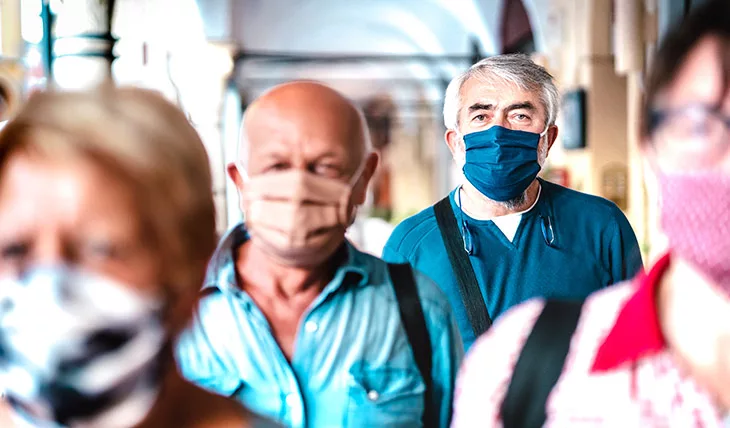While the USA and the rest of the world are happy to see vaccination numbers rise, and the wearing of masks dissipate, anxiety is still high. It has been so long since we truly felt “normal,” that it is hard to imagine what normal looks and feels like anymore.
Not ready for a mask-less society:
Even with Personal Protective Equipment (PPE) restrictions being lifted in many parts of the country, there remain those who are not comfortable mingling in society for any reason, much less without a mask. Just read the news – the COVID, shut-in, way of life of the past (long) while, has hampered many people’s physical and mental health. And now that things are opening again, not everyone is ready for it. According to the U.S. Centers for Disease Control and Prevention (CDC), although roughly 43% of people in the U.S. who are fully vaccinated, can safely ditch their masks, travel, and gather indoors with others, many are finding that they are not ready to live like they did before COVID. Mental health professionals even have a name for it, “Re-entry Anxiety.” They report that both vaccinated and unvaccinated patients are expressing concerns about returning to in-person activities. The most fragile of our society, older adults, are the ones with experiences that younger generations have not had to endure. Many have struggled through earlier local and world-wide pandemics, and the serious public health risks that were inflicted. Just think about polio, tuberculosis, measles, mumps, and more. Thanks to vaccinations (cures) and social distancing, these diseases are mainly bad memories of the past. However, despite our older adults having lived through similar experiences with public health, they have been, and continue to be, the most cautious in society. Though there are a rare few still with us who can remember the 1918 Influenza pandemic, COVID-19 has been eerily reminiscent of its effects. That pandemic lasted a couple of years when travel and the spread of the disease was not so accessible as we are seeing this time around. Thankful today, mass, and rapid administration of vaccinations are slowing the spread, and fostering well-being. And getting back to normal is the ultimate cure for society at large.
Exposure therapy:
Medical experts are recommending something called “exposure therapy”, which allows people to ease back into social situations. And the key to this is to start off slowly. Taking shorter trips is one way to begin. For example, if you are worried about restaurants in a strange city, try going out to one in your hometown, that you are comfortable with. If a long plane ride is the issue, try a shorter trip first, like taking a bus to a favorite local spot. If a big hotel with a crowded lobby is a concern, book a (private) Airbnb. Experts also recommend accepting feelings of anxiousness and understanding that it is normal to not be at ease these days. In fact, just accepting that these feelings are to be expected, can bring comfort. Another action to relieve stress is to avoid doing too many activities in a short amount of time, as it might add to feeling overwhelmed. Taking on small tasks without wearing a mask, like grocery shopping or going to the hardware store, may also help when easing back into activities and social events.
NEMT’s getting back to normal:
For the transportation industry, getting back to normal means getting back to business for Non-Emergency Medical Transportation (NEMT) operations. Slowly, many NEMT operations who suffered a near 80% drop-in service, have begun to rebound from the devastation of the last few years. In some communities, older adults are fully vaccinated, yet remain worried about re-engaging in the joys of their society. The key to engaging and returning to a pre-COVID existence, is how do we help those who we transport, to alleviate their anxiety and encourage them to travel outside the home. Providing reassurance of safety, and continuing stringent cleaning measures, is a great start. In addition, giving access to the older adults and their care providers access to our non-emergency medical transportation app might ease their travel anxiety and empower them with peace of mind and greater control.
Channel good vibes:
According to business publication Inc., one strategy that might make travel anxiety easier, is to find something positive to look forward to, and the opportunities that may present themselves. These positive vibes don’t have to be associated with something grand. Anything as simple as a change of scenery, or even a change in the weather, can be something to look forward to. Get out of the house. Go to the beach. Sit on a patio. Live a little! Even making a list of positives and encouragements, that you can easily reference, is a great way to overcome the feeling of being overwhelmed.
Be kind to yourself:
Most importantly, take care of yourself and find a pace, and a routine that suits you. Even before the pandemic, traveling was mainly a stressful experience for many, because of the many uncertainties it presented. If you can acknowledge that it may take more time for you to get back into a routine, and to get to where you’re going (safely), you can begin to enjoy this ride called life!
